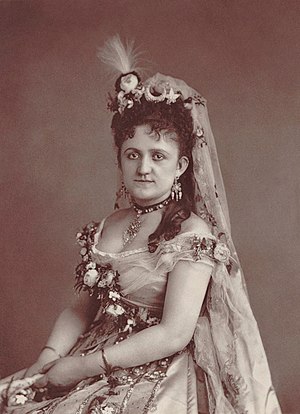Wikipedia:Main Page history/2023 September 3b
From today's featured article
SS Princess Alice sank on 3 September 1878 after a collision with the collier vessel SS Bywell Castle on the River Thames. Between 600 and 700 people died, all from the paddle steamer, in the greatest loss of life of any British inland waterway shipping accident. Princess Alice was owned by the London Steamboat Co and captained by William R. H. Grinstead. The collision occurred in an area where 75 million imperial gallons (340,000 m3) of London's raw sewage had just been released. The steamer broke into three parts, and many of her passengers drowned in the heavily polluted waters. The jury in the coroner's inquest put more of the blame on the collier; the inquiry run by the Board of Trade found that Princess Alice had not followed the right path and was culpable. In the aftermath of the sinking, changes were made to the release and treatment of sewage. The Marine Police Force were provided with steam launches, after the rowing boats used up to that point had proved insufficient. (Full article...)
Did you know ...
- ... that Patricia Mancilla (pictured) pushed to have restrictions on abortion in Bolivia expunged from the legal code – even after leaders in her own party came out against it?
- ... that an unfinished cut of Revolution+1, a film about the life of the suspected assassin of former Japanese prime minister Shinzo Abe, was released in theaters the day before Abe's state funeral?
- ... that the murderer of Yadira Arroyo was reportedly found mentally unfit to stand trial three times?
- ... that Nāmākēhā was sacrificed in 1797 after he led an unsuccessful rebellion against Hawaiian king Kamehameha I?
- ... that the Roman historian Marcus Junius Gracchanus adopted his last name to show his support for Gaius Gracchus?
- ... that the debut season of Last Week Tonight with John Oliver beat seasoned HBO counterpart Real Time with Bill Maher in the ratings?
- ... that Regina Purtell took such great care of Theodore Roosevelt's Rough Riders that the press called her the Florence Nightingale of the Spanish–American War?
- ... that in Yugoslavia, Rudi Čajavec, the electronics company that produced various components of the M-84 tank, also made guitar amplifiers?
In the news
- In Johannesburg, South Africa, a residential fire (damage pictured) kills 76 people.
- In Gabon, President Ali Bongo Ondimba is deposed by a military coup shortly after his re-election.
- A business jet crashes in Tver Oblast, Russia, killing Wagner Group leader Yevgeny Prigozhin and nine others.
- Indian spacecraft Chandrayaan-3 lands near the lunar south pole, carrying the Pragyan rover.
On this day
- 36 BC – The Sicilian revolt against the Second Triumvirate of the Roman Republic ended when the fleet of Sextus Pompey, the rebel leader, was defeated at the Battle of Naulochus.
- 1411 – The Treaty of Selymbria was concluded between the Republic of Venice and the Ottoman prince Musa Çelebi.
- 1901 – The flag of Australia flew for the first time, from the Royal Exhibition Building (pictured) in Melbourne.
- 1987 – In a military coup d'état in Burundi, Pierre Buyoya deposed the incumbent president Jean-Baptiste Bagaza while he was abroad in Canada.
- 2017 – North Korea conducted its sixth and most powerful nuclear test at Punggye-ri, causing a magnitude-6.3 earthquake.
- Umar al-Aqta (d. 863)
- Ana Monterroso de Lavalleja (b. 1791)
- Sarah Orne Jewett (b. 1849)
- Ferdinand Rudow (d. 1920)
Today's featured picture

|
Marguerite Priola (1849–1876) was a French operatic soprano. She made her debut in 1869 in Paris as the Messenger of Peace in the first French production of Wagner's Rienzi at the Théâtre Lyrique. She enjoyed a successful career at the Opéra-Comique until 1874, performing mainly coloratura soprano roles. There she created several roles, including Princess Elsbeth in Offenbach's Fantasio, Maritana in Massenet's Don César de Bazan, and Javotte in Le roi l'a dit by Delibes. In 1876, she joined the Opéra de Marseille, where she appeared as Philine in Mignon by Ambroise Thomas. Unable to use her voice to its full potential due to illness, she was booed throughout the performance. The illness developed into a serious outbreak of typhoid fever and she died three weeks later at the age of 27. This 1873 portrait, taken by the French photographer Alexandre Quinet, shows Priola in her role in Le Roi l'a dit. Photograph credit: Alexandre Quinet; restored by Adam Cuerden
Recently featured:
|
Other areas of Wikipedia
- Community portal – The central hub for editors, with resources, links, tasks, and announcements.
- Village pump – Forum for discussions about Wikipedia itself, including policies and technical issues.
- Site news – Sources of news about Wikipedia and the broader Wikimedia movement.
- Teahouse – Ask basic questions about using or editing Wikipedia.
- Help desk – Ask questions about using or editing Wikipedia.
- Reference desk – Ask research questions about encyclopedic topics.
- Content portals – A unique way to navigate the encyclopedia.
Wikipedia's sister projects
Wikipedia is written by volunteer editors and hosted by the Wikimedia Foundation, a non-profit organization that also hosts a range of other volunteer projects:
-
Commons
Free media repository -
MediaWiki
Wiki software development -
Meta-Wiki
Wikimedia project coordination -
Wikibooks
Free textbooks and manuals -
Wikidata
Free knowledge base -
Wikinews
Free-content news -
Wikiquote
Collection of quotations -
Wikisource
Free-content library -
Wikispecies
Directory of species -
Wikiversity
Free learning tools -
Wikivoyage
Free travel guide -
Wiktionary
Dictionary and thesaurus
Wikipedia languages
This Wikipedia is written in English. Many other Wikipedias are available; some of the largest are listed below.
-
1,000,000+ articles
-
250,000+ articles
-
50,000+ articles




